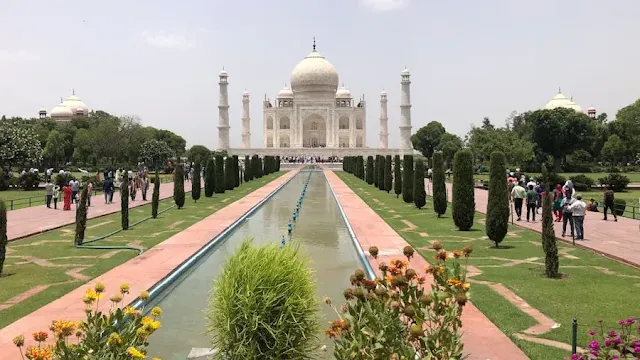The ultimate checklist for travel to India
Planning Your Trip to India: A Detailed To-Do List
Embarking on a journey to India, a land of dazzling diversity, rich traditions, and breathtaking landscapes, requires more than just packing your bags and setting off. Whether you're drawn to the majestic Himalayas, the serene backwaters of Kerala, or the historic forts and palaces of Rajasthan, a well-planned trip ensures a memorable and hassle-free experience. From necessary documentation to health precautions, this detailed to-do list is designed to guide you through essential steps in planning your adventure to India.
Essential Documentation for Travel to India
Passport and Visa: Ensure your passport is valid for at least six months beyond your date of entry into India.
Most travelers will need to apply for an Indian visa prior to their arrival. Check the latest visa requirements and types (e-tourist visa, business visa, etc.) applicable to your purpose of visit on the official Government of India e-Visa website.
Travel Insurance: Opt for a comprehensive travel insurance policy that covers medical emergencies, trip cancellations, lost luggage, and other unforeseen circumstances. Verify that your policy is valid in India and understand the claim process.
International Driving Permit (IDP): If you plan to drive in India, an IDP is required along with your valid driver's license from your home country.
Preparing for Your Trip
Vaccinations: Consult with a travel health specialist well in advance of your trip to discuss recommended vaccinations, such as Hepatitis A, Typhoid, and Tetanus, and ensure you're up-to-date on routine vaccines. Consider your itinerary, as some regions may have additional vaccine recommendations.
Medications: Bring an adequate supply of any prescription medications you're currently taking, along with a copy of the prescription. It's also wise to carry a basic travel health kit containing over-the-counter medications for common ailments like diarrhea, headaches, and allergies.
Local Currency and Payment Methods: Familiarize yourself with the Indian Rupee (INR) and consider exchanging a small amount before departure. While credit and debit cards are widely accepted in urban areas, having cash is necessary for smaller towns and rural destinations.
Cultural Research: India's diverse culture means that customs and etiquette can vary significantly across regions. Learn about local traditions, dressing norms, and basic phrases in Hindi or regional languages to enrich your interaction with locals.
Safety and Precautions
Food and Water Safety: Exercise caution with street food and tap water. Opt for bottled water, ensure food is freshly cooked and hot, and wash fruits and vegetables before consuming.
Respect Local Sensitivities: Dress modestly, especially when visiting religious sites. Always ask for permission before taking photos of people or private property.
Stay Informed: Keep track of local news and any travel advisories for the regions you plan to visit. Be aware of common tourist scams and practice caution in crowded places to avoid pickpocketing.
Transport Safety: Use reputable transportation services. For taxis and auto-rickshaws, insist on using the meter or negotiate the fare in advance. Consider using app-based ride services like Ola or Uber for convenience and safety.
Planning a trip to India is an exciting venture into a country known for its hospitality, spirituality, and incredible diversity. Tackling essential tasks from documentation to health precautions not only ensures a smooth journey but also enriches your travel experience. India's vibrant culture, stunning architecture, and natural beauty await to offer you a journey of a lifetime. With this detailed to-do list in hand, you're well on your way to a well-planned adventure in the heart of India.





No comments:
Post a Comment